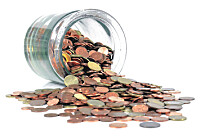Interior Minister wins election to head French right-wing Les Républicains party
Bruno Retailleau is seen as a hardliner on immigration
The Interior Minister is almost certain to run in the 2027 presidential election for Les Républicains
Antonin Albert/Shutterstock
French Interior Minister Bruno Retailleau is the new president of the right-wing Les Républicains (LR) party, after winning nearly three-quarters of the vote in an internal election.
The cabinet member received 74.31% of party members’ votes to be the new president, far ahead of Laurent Wauquiez, the only other candidate.
It means Mr Retailleau – seen as a traditional right-wing politician but with hardline views on immigration – is now likely to run in the 2027 presidential election as head of the party, and attempt to become the first right-wing president since Nicolas Sarkozy in 2007.
He replaces former leader Eric Ciotti, who dramatically split the party during the 2024 legislative election campaign by aligning with the far-right Rassemblement National (RN) and going against the wishes of the vast majority of the party’s politicians.
The party has been without a leader since September 2024, when Mr Ciotti was officially ousted.
Will Retailleau bring electoral success?
Mr Retailleau hopes that his stance on immigration will win back votes lost to far-right parties in recent elections.
Following the 2024 legislative elections, the party has 45 MPs of the 577 – in comparison, Mr Ciotti’s UDR has 16, and the RN 123.
Overall, it is the fifth-largest single party by MP count, although several smaller parties are aligned either with the left-wing or centrist blocs.
This is a far cry from 2017 when the party won 136 seats or 2012 (229), and despite being in an informal coalition with the current Macron government, the party has not held full legislative power in the chamber since 2007.
The party fares better in the Senate, where it forms part of a traditional right-win majority and occupies 115 of the 348 seats available.
In reality, Mr Retailleau and Mr Wauquiez differ little in political outlook, with the vote more an estimation of the party’s strategy for the coming years.
Mr Retailleau’s plan of working with the presidential camp in the current government to improve party credibility and regroup before 2027 was widely approved by the party membership in the vote.
He said that the matter of the LR’s participation in the current government had effectively been approved by his election to the head of the party.
Mr Wauquiez has proposed a more distant approach, including an attempt to rule out the parties working together following the 2024 legislative elections.
Mr Ciotti congratulated the Interior Minister on his victory and called for him to bring the party into a wider ‘union’ of parties on the right. However this is considered unlikely given Mr Retailleau’s stance on working with Macronist parties.
Will this change the Interior Minister’s role?
Cross-party coalitions such as the current one are rare in France (usually a single party or voting bloc wins enough seats outright), placing Mr Retailleau in a somewhat unique position.
Emmanuel Macron was a cabinet member under François Hollande when he set up his own ‘En Marche’ party in April 2016, and held his post until August of that year before resigning.
However, heading up the LR should not in theory interrupt Mr Retailleau’s daily work as Interior Minister under the government, and he seems set on a tight partnership with Macronist politicians and the current prime minister François Bayrou.
Recently, he has asked prefectures to be stricter in enforcing naturalisation rules, and wants a new debate on immigration in the coming months.
Any success Mr Retailleau earns during his tenure in the cabinet is likely to help in the 2027 presidential elections, meaning it is in his interest to commit to the role of Interior Minister.





























